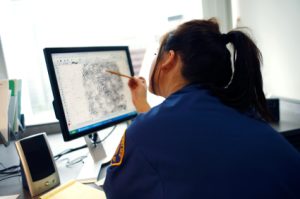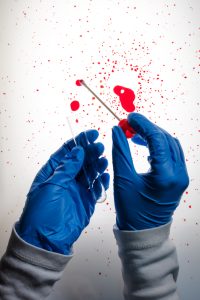Forensic nursing programs have emerged as a crucial component of the healthcare system, bridging the gap between medical care and legal proceedings. These specialized programs equip nurses with the skills to address the complex needs of patients who are victims of violence or trauma. The role of forensic nurses, including sexual assault nurse examiners (SANEs), has become increasingly important in providing compassionate care while collecting and preserving evidence.
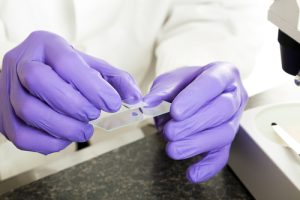
Forensic nursing practice involves navigating a myriad of ethical challenges. This article explores the ethical foundations of forensic nursing and delves into key issues such as obtaining consent in trauma situations, collaborating with multidisciplinary teams, and maintaining cultural competence. It also examines the ethical use of technology in forensic nursing and the importance of self-care for practitioners. By addressing these topics, we aim to provide insights into the ethical considerations that shape forensic nursing certificate programs and guide ethical practice in this vital field.
Please also review AIHCP’s Forensic Nursing Program and see if it meets your academic and professional goals.
Ethical Foundations of Forensic Nursing
The ethical foundations of forensic nursing programs are built upon a complex framework that guides practitioners in navigating the unique challenges of their field. These foundations are essential for maintaining the integrity of forensic nursing practice and ensuring that patients receive compassionate, competent care while also serving the needs of the criminal justice system.
Professional codes of ethics
Forensic nursing programs rely heavily on established professional codes of ethics to guide their practice. The American Nurses Association (ANA) Code of Ethics with Interpretive Statements serves as a cornerstone for ethical decision-making in nursing, including forensic nursing. This code provides a framework for nurses to approach ethical dilemmas and make informed choices that align with the profession’s values.
The International Association of Forensic Nurses (IAFN) has also developed its own Vision of Ethical Practice. This document serves as a guide for looking at ethical issues within forensic nursing and is designed to encourage, rather than enforce, a standard of practice. It emphasizes the importance of providing forensic nursing care in a manner that respects the uniqueness of each patient or client.
Forensic nurses are expected to aspire to the highest standards of ethical nursing practice. This includes collaborating with healthcare providers and other professionals worldwide to promote ethically informed and culturally competent practices. When faced with ethical choices, forensic nurses should use recognized ethical frameworks for decision-making, guided by the principles of autonomy, justice, beneficence, and non-maleficence.
Ethical principles specific to forensic practice
Forensic nursing practice involves unique ethical considerations due to its intersection with both the healthcare system and the criminal justice system. This dual role can lead to conflicts between the needs of the patient and the requirements of the legal system.
To address these challenges, forensic nursing programs emphasize the importance of clear policies and procedures. These guidelines cover critical areas such as informed consent, providing examinations for unconscious patients, and collecting evidence from non-consenting suspects. By having these protocols in place, nurses can provide ethical care in many complex situations.
The Forensic Nursing Certification Board (FNCB), which serves as the certifying body for forensic nurses globally, plays a crucial role in defining and maintaining ethical standards. The FNCB emphasizes the importance of continued competence through certification and maintenance of certification. This involves acquiring new knowledge through continuing education, attending educational events, reviewing literature, and validating practice competence through employer evaluations.
Forensic nursing programs also stress the importance of cultural competence in ethical practice. Nurses are taught to acknowledge the value and dignity of all human beings and to strive to create an environment where violence is not accepted. This includes understanding societal factors, such as oppression, that contribute to violence.
In research and scientific contributions, forensic nurses are expected to ensure thoroughness, accuracy, and unbiased design and presentation. They are also required to incorporate evidence-based knowledge in practice decisions and disclose any conflicts of interest.
Forensic nursing programs emphasize the importance of seeking guidance when faced with ethical dilemmas. Most hospitals have risk managers and ethics committees, and forensic nurses are taught to be aware of how these resources function and when to contact them with concerns. This approach ensures that ethical decision-making goes beyond individual judgment and considers legal implications and patient autonomy.
Navigating Consent in Trauma Situations

Obtaining informed consent in forensic nursing programs presents unique challenges, especially when dealing with patients who have experienced trauma. The process becomes even more complex in emergency situations where time is of the essence. Forensic nurses must navigate these delicate scenarios with care, ensuring that they respect patient autonomy while fulfilling their professional obligations.
Obtaining informed consent from vulnerable patients
In forensic nursing practice, obtaining informed consent from vulnerable patients is a significant ethical challenge. Patients must be fully aware of the procedures they will undergo, not only for medical treatment but also for evidence collection that may affect legal proceedings. This becomes particularly complex when dealing with victims who are minors, mentally incapacitated, or severely traumatized.
Forensic nursing programs emphasize that consent is more than just obtaining a signature on a form. It involves helping patients make informed decisions about their care. This process requires clear communication and patience, especially when working with vulnerable individuals who may have difficulty understanding or processing information due to their trauma.
For patients with cognitive impairments related to age or disability, forensic nurses must determine their legal ability to consent. In some cases, a designated person may have the authority to make healthcare decisions on behalf of the patient. Forensic nursing certificate programs teach nurses to recognize and respect these legal arrangements while still striving to involve the patient in the decision-making process to the extent possible.
Ethical considerations in emergency forensic examinations
Emergency forensic examinations present unique ethical dilemmas for forensic nurses. In these situations, the need to collect time-sensitive evidence must be balanced against the patient’s right to give informed consent. Forensic nursing programs provide guidance on how to handle these challenging scenarios.
One key consideration is the patient’s capacity to provide consent. Patients who are unconscious, heavily intoxicated, or experiencing severe psychological distress may not be able to give informed consent at the time of examination. In such cases, forensic nurses must follow established protocols that address when to wait for the patient to regain consciousness, how to obtain consent from another authorized person, or how to collect and preserve evidence until consent can be legally obtained.
Forensic nursing practice also emphasizes the importance of ongoing consent throughout the examination process. Patients should be aware that they can decline any procedure or part of the examination at any time. This approach respects patient autonomy and helps to build trust, which is crucial when working with trauma survivors.
In emergency situations, forensic nurses must also consider the potential impact of trauma on a patient’s ability to understand the long-term implications of consent given at the time of examination. Forensic nursing programs teach nurses to provide clear, concise information and to reassess the patient’s understanding throughout the process.
Navigating consent in trauma situations requires forensic nurses to balance legal requirements, ethical obligations, and patient-centered care. By adhering to established protocols and maintaining clear communication, forensic nurses can ensure that they respect patient rights while fulfilling their crucial role in the healthcare and legal systems.
Ethical Challenges in Multidisciplinary Collaboration
Forensic nursing programs emphasize the importance of multidisciplinary collaboration in providing comprehensive care to patients affected by violence and trauma. However, this collaboration presents unique ethical challenges that forensic nurses must navigate. The intersection of healthcare and the legal system often leads to complex situations where the needs of the patient may conflict with the requirements of the criminal justice system.
Working with law enforcement and legal professionals
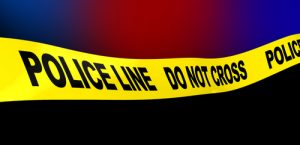
Forensic nurses frequently interact with law enforcement officers and legal professionals as part of their role. This collaboration can create ethical dilemmas, particularly when the priorities of these different disciplines do not align. For instance, law enforcement may request that a nurse limit documentation about a patient’s mental health status or previous history of drug abuse to prevent potentially damaging information from being available to a defense attorney. However, failing to document such findings may directly violate the nurse practice act and compromise patient care.
Forensic nursing practice requires a delicate balance between fulfilling legal obligations and maintaining ethical standards of patient care. Nurses must be able to justify their actions based on the healthcare needs of the patient, rather than the prosecutorial needs of the criminal justice system. This often involves clear communication with law enforcement and legal professionals about the nurse’s ethical obligations and the importance of comprehensive patient care.
To address these challenges, forensic nursing programs stress the importance of having clear policies and procedures in place. These guidelines help nurses navigate complex situations, such as obtaining informed consent, providing examinations for unconscious patients, and collecting evidence from non-consenting suspects. By adhering to established protocols, forensic nurses can provide ethical care while fulfilling their legal responsibilities.
Maintaining nursing ethics in collaborative settings
Forensic nurses must uphold their professional ethics while working in collaborative settings that may have different priorities. The American Nurses Association Code of Ethics serves as a framework for ethical decision-making in these situations. Additionally, the International Association of Forensic Nurses has published a Vision of Ethical Practice, which provides guidance specifically for forensic nursing.
One of the primary ethical considerations in collaborative settings is maintaining patient confidentiality while fulfilling legal obligations. Forensic nurses often have access to sensitive information that could impact a legal case. Deciding what information to share with law enforcement and what should remain confidential to protect the patient’s privacy requires careful ethical consideration.
To navigate these ethical dilemmas, forensic nursing programs emphasize the importance of ongoing education and training in ethics. Many programs encourage peer discussions and participation in ethical review boards to ensure that practices align with both medical ethics and legal standards. Forensic nurses are also taught to be aware of resources such as hospital risk managers and ethics committees, and when to seek their guidance on complex ethical issues.
Ultimately, maintaining nursing ethics in collaborative settings requires a strong understanding of both healthcare and legal systems. Forensic nurses must be prepared to advocate for their patients’ rights and well-being while also fulfilling their responsibilities to the justice system. This delicate balance is at the heart of ethical practice in forensic nursing and underscores the importance of comprehensive training in forensic nursing programs.
Cultural Competence and Ethical Practice
Cultural competence plays a crucial role in forensic nursing programs, as nurses are called to care for patients and families from diverse backgrounds and cultural groups. As the United States becomes increasingly diverse, with projections indicating a ‘majority-minority’ population by 2044, healthcare providers, especially forensic nurses, must be well-equipped to work with diverse populations.
Addressing cultural diversity in forensic nursing
Forensic nursing practice requires a shift from the traditional focus on cultural competence to a more nuanced approach of cultural humility. This concept emphasizes self-reflection, critique, partnership-building, and lifelong learning. Cultural humility involves valuing each person’s cultural and educational backgrounds, including life experiences, which is critical in promoting diversity within forensic nursing programs.
By practicing cultural humility, forensic nurses can ensure that their messages are communicated in a culturally acceptable manner, demonstrating respect for patients and their cultures. This approach allows nurses to learn from patients by listening to their experiences and life stories, leading to a better understanding of diverse perspectives.
Forensic nursing certificate programs stress the importance of ongoing education and training in cultural competence. Many programs encourage peer discussions and participation in ethical review boards to ensure that practices align with both medical ethics and cultural sensitivity. This approach helps forensic nurses navigate the complex intersections of healthcare, legal systems, and diverse cultural backgrounds.
Ethical considerations in cross-cultural forensic care
When providing forensic nursing care across cultural boundaries, several ethical considerations come into play. Forensic nurses must acknowledge the value and dignity of all human beings and strive to create an environment where violence is not accepted. This includes understanding societal factors, such as oppression, that contribute to violence and recognizing their role in prevention.
Establishing trust is critical in building successful relationships with patients from diverse backgrounds. Trust is a multidimensional concept that involves honoring others’ expectations, boundaries, and perspectives as valid. In cross-cultural forensic care, trust-building behaviors include creating an environment of openness and transparency that leads to a sense of community and shared purpose.
Forensic nursing programs emphasize the importance of being aware of potential biases and working to eliminate their effects. This aligns with the American Psychological Association’s Ethics Code, which calls for respect for cultural, individual, and role differences based on various factors such as race, ethnicity, culture, and socioeconomic status.
When evaluating trauma survivors from different cultural backgrounds, forensic nurses must consider how an individual’s cultural context impacts their experiences of traumatic events and interactions with the legal system. This sensitivity is particularly important in forensic contexts, where there’s a need to delineate the specific impact and potential harm experienced as a result of a traumatic event.
Forensic nursing practice in cross-cultural settings also requires an understanding of how various aspects of identity can increase the likelihood of experiencing traumatic events and developing dissociative symptoms, particularly for individuals from disempowered groups within the dominant culture. This knowledge helps forensic nurses provide more comprehensive and culturally sensitive care.
By incorporating these ethical considerations and cultural competence strategies into their practice, forensic nurses can provide more effective, compassionate care while fulfilling their crucial role in the healthcare and legal systems.
Ethical Use of Technology in Forensic Nursing
The role of forensic nursing has been significantly enhanced by technological advancements, allowing for more efficient and accurate evidence collection, improved patient care, and better collaboration with law enforcement agencies. However, these advancements also bring ethical challenges that forensic nursing programs must address.
Digital evidence collection and privacy
Forensic nurses now have access to sophisticated digital tools that aid in the collection and preservation of evidence. DNA technology has become an integral part of forensic nursing, helping to examine and analyze evidence carefully collected from victims of violence. This technology can assist in determining the weapons used in violent altercations, identifying individuals present at crime scenes, and even establishing the identity of victims in mass traumatic events.
Alternative light sources have also become essential tools for forensic nurses. These devices can detect injuries and bruises beneath a victim’s skin, making them particularly useful in documenting cases of strangulation. High-definition digital cameras allow for detailed documentation of injuries and crime scenes, providing crucial visual evidence for legal proceedings.
However, the use of these technologies raises important ethical considerations regarding patient privacy and data security. Forensic nursing programs must emphasize the importance of obtaining informed consent from patients before collecting digital evidence. Nurses must also be trained in proper data management techniques to ensure that sensitive information is protected from unauthorized access or breaches.
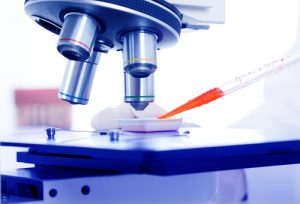
Telemedicine in forensic nursing practice
Telemedicine has gained significant traction in forensic nursing, particularly in areas with limited access to specialized providers. Telehealth applications have shown promising results in improving the confidence of providers in their forensic examination skills, enhancing the quality of care, and increasing patient satisfaction.
Synchronous or live videoconferencing has been found to be particularly helpful in serving patients presenting for medical forensic services. This technology allows for real-time feedback, guiding bedside nursing staff through the evidence collection process, providing staffing support, and alleviating staffing burdens. Telemedicine has also proven valuable in pediatric sexual abuse care and forensic examinations, enabling higher quality evaluations, more complete examinations, and more accurate diagnoses in areas with limited access to specialized providers.
However, the use of telemedicine in forensic nursing raises ethical concerns related to patient confidentiality and the security of sensitive information transmitted over digital platforms. Forensic nursing programs must address these concerns by incorporating training on secure communication protocols and ensuring that telemedicine practices comply with relevant privacy laws and regulations.
As technology continues to evolve, forensic nursing programs must stay at the forefront of ethical considerations in digital evidence collection and telemedicine. By addressing these ethical challenges, forensic nurses can harness the power of technology to provide better care for patients while maintaining the highest standards of privacy and confidentiality.
Self-Care and Ethical Practice
Forensic nursing programs emphasize the importance of self-care as an essential component of ethical practice. The demanding nature of forensic nursing roles, particularly for sexual assault nurse examiners (SANEs), can have a significant impact on nurses’ emotional and psychological well-being. Recognizing and addressing these challenges is crucial for maintaining professional competence and providing high-quality care to patients.
Managing vicarious trauma
Forensic nurses frequently encounter patients who have experienced traumatic events, which can lead to vicarious trauma. This process of change results from empathetic engagement with trauma survivors and can affect anyone who works closely with victims of violence. Common signs of vicarious trauma include lingering feelings of anger or sadness about a patient’s victimization, over-identification with patients, and difficulty maintaining professional boundaries.
To address vicarious trauma, forensic nursing practice should incorporate strategies for self-observation and self-care. This includes recognizing and charting signs of stress, engaging in relaxing activities, and maintaining a healthy work-life balance. Forensic nursing programs should educate nurses about vicarious trauma and equip them with tools to manage its effects.
Maintaining ethical standards while addressing personal well-being
Balancing professional responsibilities with personal well-being is essential for preventing burnout and ensuring sustained job satisfaction in forensic nursing. The International Association of Forensic Nurses expects its members to aspire to the highest standards of ethical nursing practice while also acknowledging the importance of self-care.
To maintain ethical standards while addressing personal well-being, forensic nurses should:
- Seek social support from colleagues and participate in peer support systems.
- Engage in regular self-reflection and use recognized ethical frameworks for decision-making.
- Incorporate evidence-based knowledge in practice decisions.
- Maintain a balanced caseload, mixing more and less traumatized clients.
- Take regular breaks and time off when needed.
Forensic nursing certification programs should emphasize that self-care is not a sign of weakness but a crucial aspect of maintaining professional competence. By re-conceptualizing self-care as a communal activity, forensic nurses can create a culture of support where they openly share struggles and provide feedback to one another.
Ultimately, integrating self-care into professional identity can be a source of strength for forensic nurses, enabling them to uphold ethical standards while effectively managing the unique challenges of their role in the healthcare system.
Conclusion

Forensic nursing programs play a crucial role in bridging the gap between healthcare and the legal system. These programs equip nurses with the skills to handle complex ethical dilemmas, from obtaining consent in trauma situations to maintaining cultural competence. The ethical use of technology and the importance of self-care are also key aspects that have an impact on the field. By addressing these challenges, forensic nurses can provide better care for patients while upholding the highest ethical standards.
To wrap up, the field of forensic nursing continues to evolve, bringing new opportunities and challenges. As the healthcare landscape changes, forensic nursing programs must stay ahead of the curve to prepare nurses to handle ethical issues effectively. By focusing on ongoing education, cultural humility, and self-care, forensic nurses can maintain their ethical standards while providing crucial support to patients and the justice system. This balanced approach ensures that forensic nursing remains a vital and respected field in the years to come.
Please also review AIHCP’s Forensic Nursing Program and see if it matches your academic and professional goals. The program and certification is online and independent study with mentorship as needed.
FAQs
- What ethical conflicts do forensic nurses encounter?
- Forensic nurses often face ethical conflicts that arise from their dual responsibilities: caring for the health and well-being of their patients while also fulfilling crucial roles in the justice system.
- Can you describe some ethical challenges specific to forensic science?
- Ethical challenges in forensic science typically include maintaining confidentiality, managing dual relationships, ensuring informed consent, addressing deception in research, and sustaining objectivity during court testimonies as expert witnesses.
- What are some common challenges faced by forensic nurses?
- Forensic nurses frequently deal with stressful, traumatic, and high-pressure situations that can lead to professional exhaustion. A significant challenge they face is managing the vicarious trauma that comes from their work environments.
- Could you provide examples of ethical dilemmas common in general nursing practice?
- Common ethical dilemmas in nursing practice encompass issues like end-of-life care decisions, balancing patient confidentiality with the necessity of sharing information, challenges related to informed consent, allocation of limited healthcare resources, and reconciling patient autonomy with medical advice.


